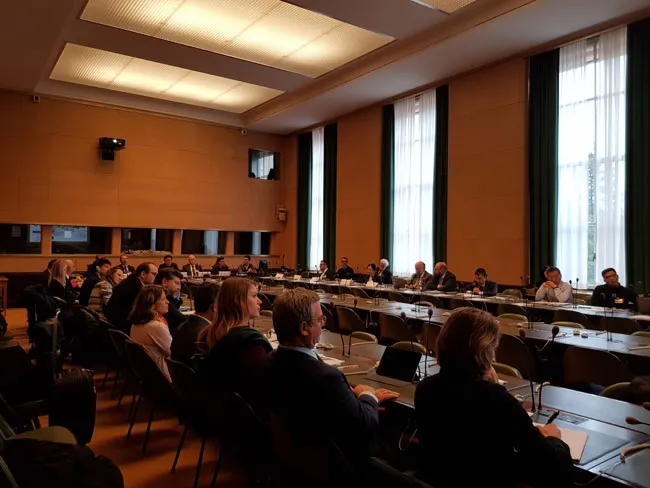As part of the wider partnership with FIA, IRF Geneva will work with the Kenyan organisation on a project that addresses postcrash care.
Given the positive results of an initial project delivered in 2016, growing international recognition of the value and impact that Enhanced First Aid (eFD) has in reducing the number of fatalities and severity of injuries, it has been decided to scale up the initiative. IRF Geneva has recently successfully trained more than 12,000 drivers in India and is engaging in a
April 6, 2017
Read time: 2 mins

As part of the wider partnership with FIA, IRF Geneva will work with the Kenyan organisation on a project that addresses postcrash care.
Given the positive results of an initial project delivered in 2016, growing international recognition of the value and impact that Enhanced First Aid (eFD) has in reducing the number of fatalities and severity of injuries, it has been decided to scale up the initiative.1201 IRF Geneva has recently successfully trained more than 12,000 drivers in India and is engaging in a global effort aiming at increasing local capacity to train drivers on the Enhanced First Aid for Drivers (eFD). As a reminder, Public Services Vehicle (PSV) drivers/commercial drivers are usually the first to arrive at the accident scene. Competence, capacity, and confidence to be the first responder for a traffic injury can have a major impact on the reduction of mortality and morbidity on the roads. eFD focuses specifically on the skills necessary to recognise and respond to the injuries that professional drivers are likely to encounter. It also includes medical conditions that may be met. eFD is meant to deliver practical hands-on skills imparted by experts who themselves are qualified in medical supervision. The project aims to build capacity in the country by initially training 20 trainers in Nairobi, Mombasa, Kisumu, Nakuru and Eldoret, where the amount of commercial vehicles is high and so is the number of drivers who can benefit from FIA training. The trainers can then start delivering eFD in a systematic way throughout the country. The project will also support in advocating the case within the Kenyan Government for making the eFD training mandatory for commercial drivers (of certain classes of vehicles). Finally, the project will also secure commitments for financing the roll-out of Phase 2 throughout the country.
For more info, please contact Susanna Zammataro, executive director IRF Geneva at %$Linker:2 Email <?xml version="1.0" encoding="utf-16"?><dictionary /> 0 0 0 oLinkEmail [email protected] email [email protected] false mailto:[email protected] true false %>
Given the positive results of an initial project delivered in 2016, growing international recognition of the value and impact that Enhanced First Aid (eFD) has in reducing the number of fatalities and severity of injuries, it has been decided to scale up the initiative.
For more info, please contact Susanna Zammataro, executive director IRF Geneva at %$Linker:









